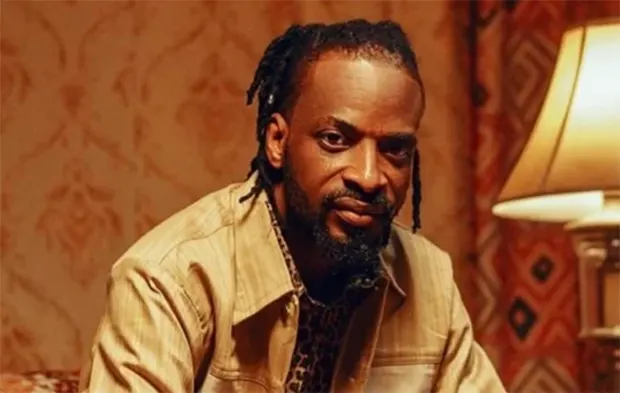Nigerian musician 9ice, renowned for his hit song “Gongo Aso,” recounted a harrowing period in his life marked by a mysterious ailment that defied medical explanation. Around 2009/2010, he endured six grueling months of vomiting blood, a condition that left medical professionals baffled. Confined to his home, 9ice’s health deteriorated as the perplexing symptoms persisted. Desperate for answers and relief, he sought alternative solutions outside the realm of conventional medicine, ultimately leading him on a path of spiritual discovery that transformed his worldview. This ordeal, he believes, was not a physical illness, but rather a spiritual attack.
9ice’s pursuit of healing led him to an Ifa priest, a practitioner of the traditional Yoruba religion. Under the priest’s guidance, 9ice began to explore the spiritual dimensions of his affliction. The experience proved transformative, leading to his recovery and a profound shift in his beliefs. He embraced Ifa, a system of divination and spiritual practice deeply rooted in Yoruba cosmology, rejecting the Christian and Muslim faiths he had previously adhered to. This spiritual awakening led him to identify as a Babalawo, a practitioner of Ifa, expressing regret for not having discovered this path earlier in his life. This experience solidified his belief that the affliction was indeed a spiritual attack, and that Ifa provided him with the necessary tools for healing and protection.
9ice’s newfound faith resonated with the legacy of Afrobeat legend Fela Kuti, a staunch advocate for traditional African religions. Fela often faced ridicule and criticism for his open embrace of traditional beliefs and practices, a stance that 9ice now deeply understands and appreciates. He recognizes the courage it took for Fela to challenge societal norms and champion indigenous spiritual systems in the face of widespread disapproval. This parallel between his own experience and Fela’s further solidified 9ice’s conviction in the power and relevance of traditional African spirituality.
The artist’s journey underscores a growing trend among some Africans seeking to reconnect with their ancestral spiritual heritage. 9ice’s public declaration of his faith in Ifa reflects a broader movement towards reclaiming traditional belief systems that were often suppressed during the colonial era. This resurgence of interest in indigenous practices signals a desire to preserve cultural identity and explore alternative pathways to spirituality. 9ice’s story serves as a testament to the enduring power of these ancestral traditions in contemporary African society.
9ice’s experience prompted him to advocate for the embrace of traditional African beliefs, viewing them as essential components of African identity. He argues that these traditions hold valuable insights and practices that offer a deeper understanding of the world and one’s place within it. He encourages Africans to explore their ancestral spiritual heritage, suggesting that it provides a strong foundation for personal and collective growth. He believes that by embracing these traditions, Africans can reclaim a vital part of their cultural heritage and forge a stronger connection to their roots.
The musician’s testimony serves as a powerful reminder of the diversity of spiritual experiences and the search for meaning that transcends conventional boundaries. His story highlights the importance of respecting individual spiritual choices and recognizing the validity of diverse belief systems. 9ice’s public embrace of Ifa contributes to a broader dialogue about the role of spirituality in contemporary society and the ongoing quest for personal and collective healing. His experience offers a compelling narrative about the transformative power of faith and the enduring relevance of traditional African religions.


